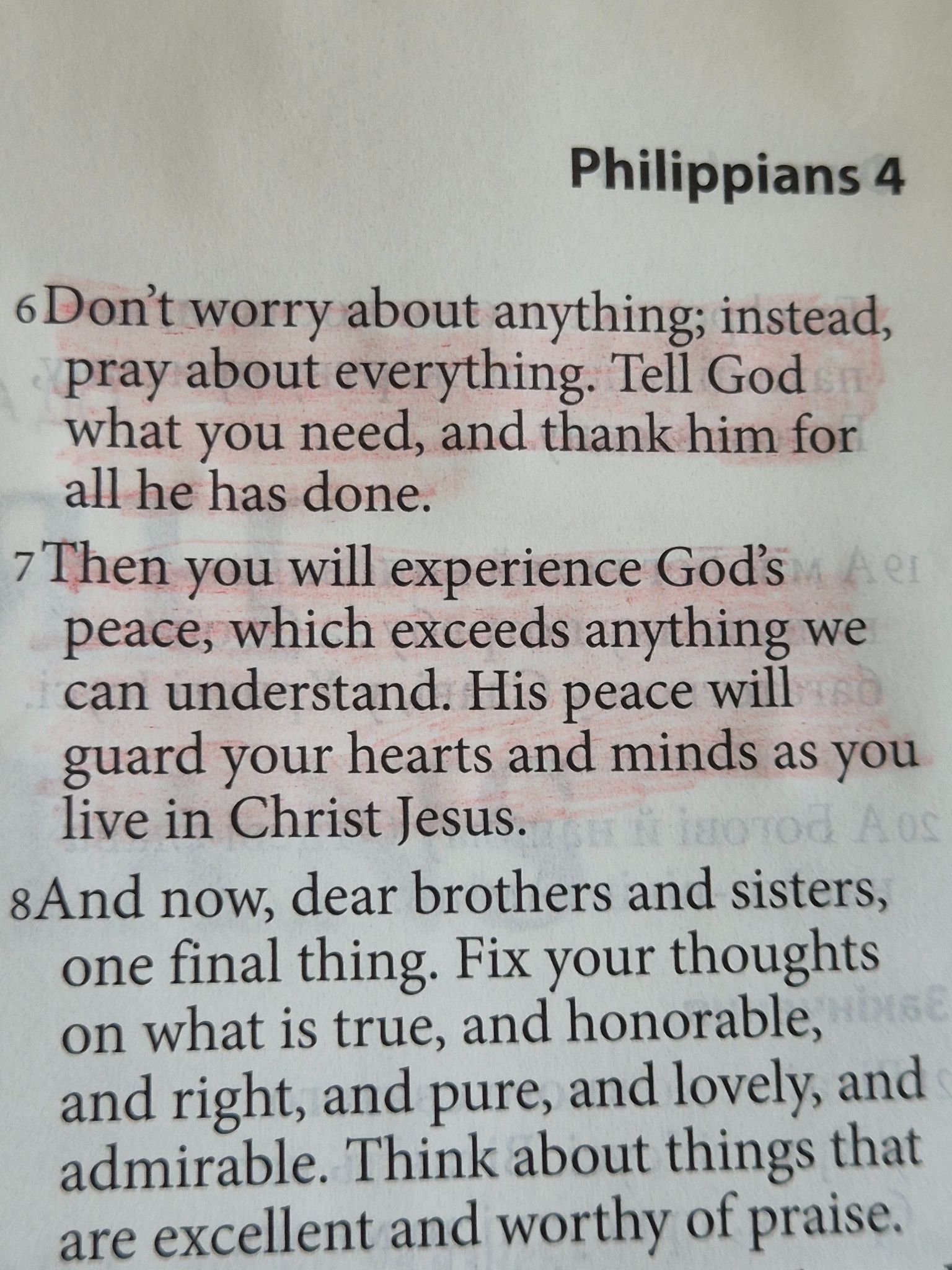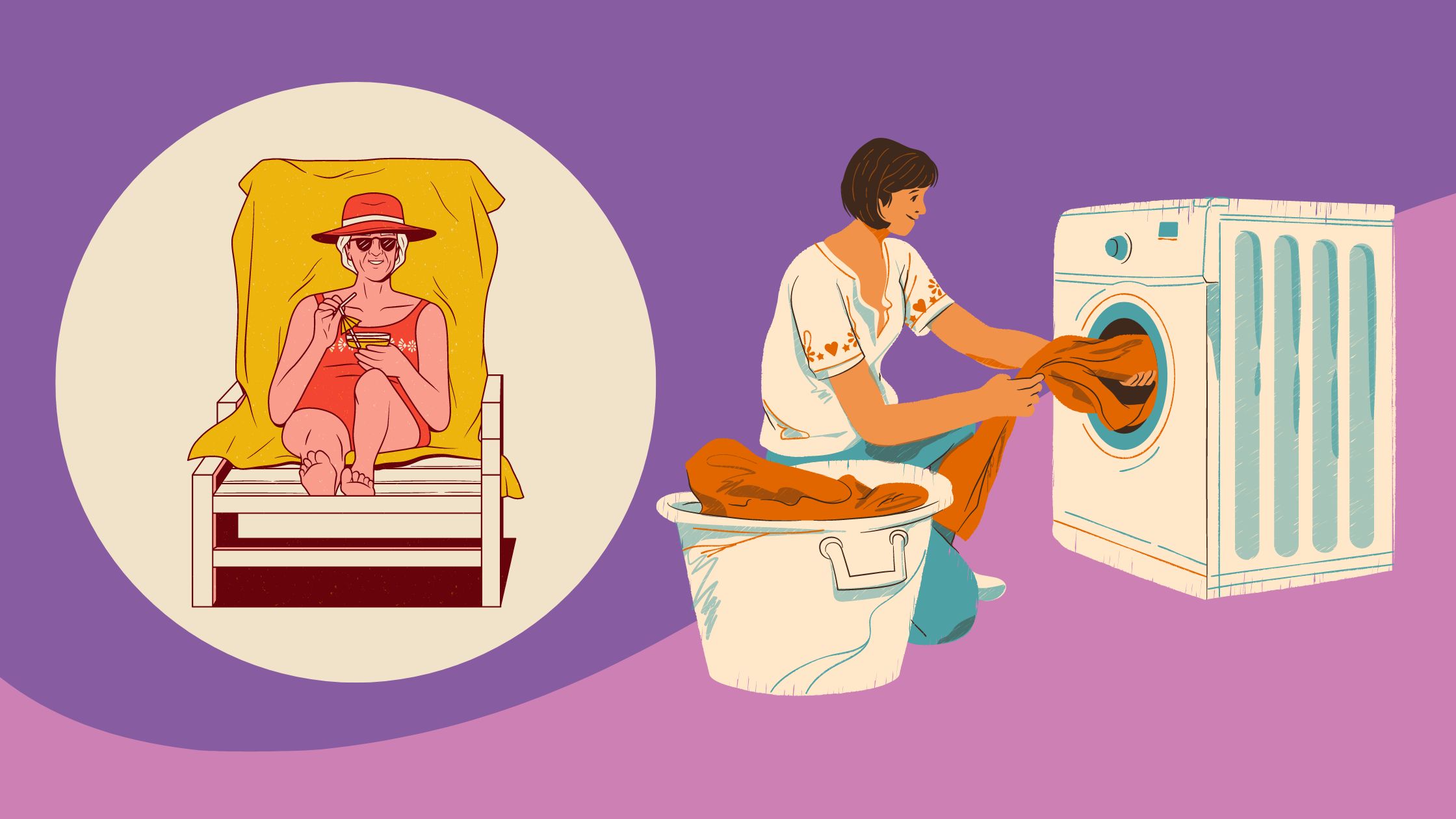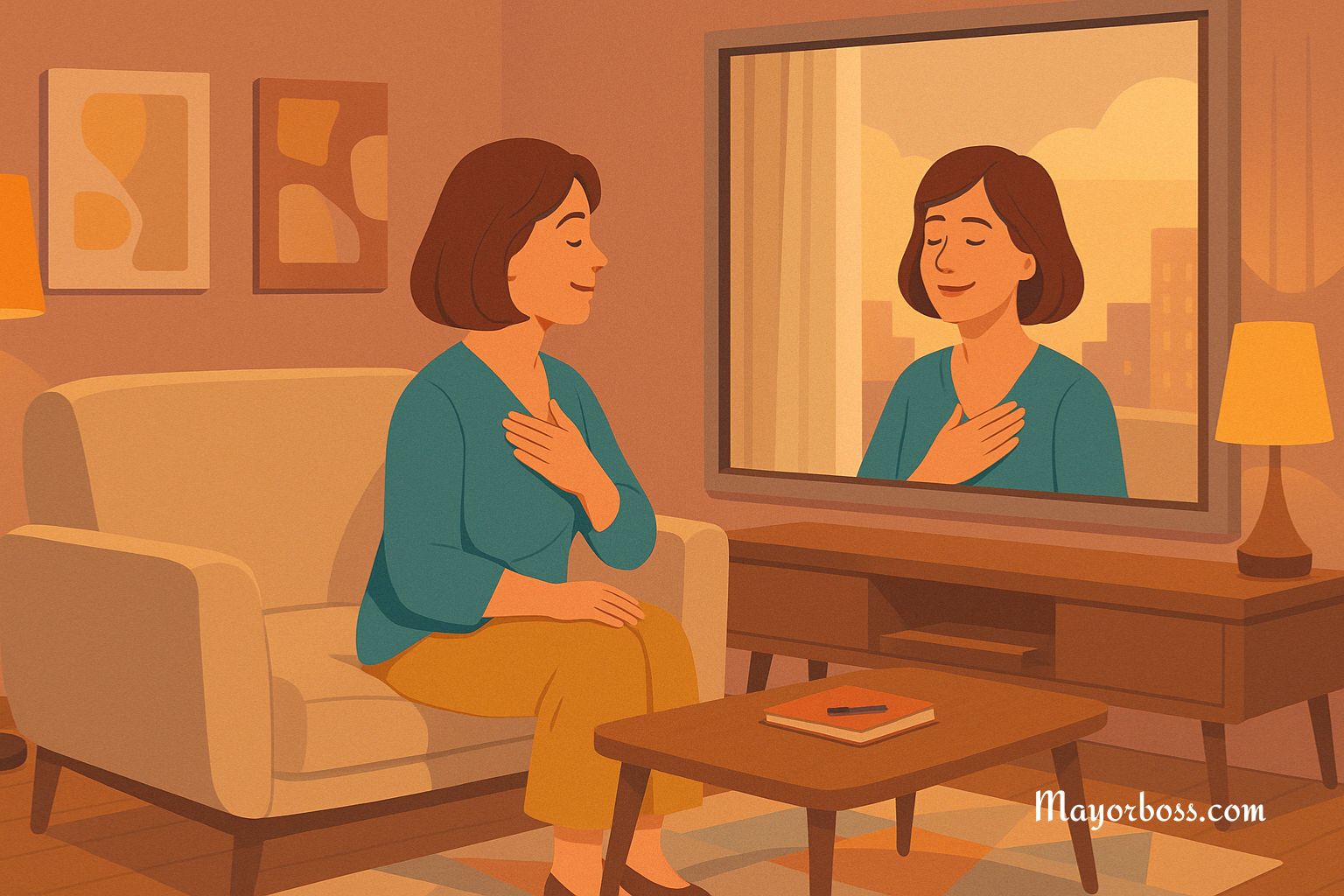5 Ways to Calm Yourself When You’re Anxious
If you feel anxious, try these five calming methods: focus on your breathing, ground yourself in the present, move your body, meditate on Philippians 4:6-7, and practice self-compassion. Each step can help lower anxiety and restore a sense of control.

Anxiety is your body’s natural response to stress. Sometimes, it feels like a racing heart, sweaty palms, or a knot in your stomach. Other times, it might show up as constant worry or the sense that something bad will happen. If you’ve ever experienced these feelings, you’re not alone. Anxiety is common, and anyone can feel overwhelmed from time to time. The good news is there are practical ways to calm yourself when anxiety strikes.
1. Focus on Your Breathing
When anxiety hits, your breathing often becomes quick and shallow. This can make your body feel even more on edge. To break this cycle, slow your breathing down.
Try this:
Breathe in slowly through your nose for four seconds. Hold that breath for four seconds. Exhale gently through your mouth for four seconds. Wait another four seconds before taking your next breath. Repeat this process a few times.
This technique, sometimes called “box breathing,” helps tell your body it’s safe. It can lower your heart rate and help your mind settle. Focusing on each breath pulls your attention away from worry and brings it back to your body.
2. Ground Yourself in the Present
Anxiety often comes from worrying about what might happen next. Grounding techniques bring your mind back to the present moment.
One simple way to ground yourself is the “5-4-3-2-1” method. Look around and name:
- Five things you can see
- Four things you can feel
- Three things you can hear
- Two things you can smell
- One thing you can taste
This exercise uses your senses to anchor you in what’s real right now, not what might happen in the future. It helps interrupt anxious thoughts and restores a sense of control.1
3. Move Your Body
Physical activity is a powerful way to calm anxiety. Movement can help release built-up tension in your muscles. Even a short walk, a few gentle stretches, or dancing to your favorite song can help.
Exercise encourages your brain to release chemicals called endorphins, which are natural mood boosters. Just moving for a few minutes can help you reset. If you can, step outside and get some fresh air. Nature and sunlight can support your mental well-being.2
4. Meditate on Philippians 4:6-7 and 2 Timothy 1:7
Sometimes anxiety makes it hard to find peace, even when you try your best. Turning to faith can offer comfort and strength. Two verses many people find encouraging are Philippians 4:6-7 and 2 Timothy 1:7.
Philippians 4:6-7 says:
“Do not be anxious about anything, but in every situation, by prayer and petition, with thanksgiving, present your requests to God. And the peace of God, which transcends all understanding, will guard your hearts and your minds in Christ Jesus.”
2 Timothy 1:7 reminds us:
“For God has not given us a spirit of fear, but of power and of love and of a sound mind.”
When you feel anxious, pause and reflect on these words. Read them slowly, and let them fill your mind. Pray, if you feel comfortable, asking for peace and strength. Let the truth of these verses remind you that anxiety is not your identity—you have access to peace, courage, and a sound mind.
You might choose to write these verses down and keep them nearby. When anxious thoughts come, revisit them as needed. Even when your circumstances do not change right away, these promises offer hope and reassurance that you’re never alone.
5. Practice Self-Compassion
When anxiety takes hold, you might find yourself getting frustrated or even angry at yourself for feeling this way. Instead, try speaking to yourself with the same kindness you would offer a friend.
Remind yourself that it’s okay to feel anxious. These feelings are not a sign of weakness or failure. They’re a natural part of being human. You can tell yourself, “This is hard right now, but I can handle it.” Or, “I’m doing the best I can, and that’s enough.”
Self-compassion isn’t about ignoring your anxiety—it’s about meeting it with understanding. This approach can help you ride out anxious moments without harsh self-judgment.
Takeaway
Everyone feels anxious at times, but you don’t have to stay stuck in those feelings. You can use breathing, grounding techniques, movement, meditation on comforting scripture, and self-compassion to calm your mind and body. With practice, these habits can make anxiety easier to manage.
If you need more support, don’t hesitate to talk with your doctor or a mental health professional.
FAQs
1. What are the physical symptoms of anxiety?
Common symptoms include a racing heart, sweating, shaking, shortness of breath, and a feeling of tightness in your chest or stomach.
2. Can anxiety go away on its own?
Mild anxiety can sometimes fade with time and self-care. If it keeps coming back or gets worse, professional help can make a difference.
3. What foods or drinks can make anxiety worse?
Caffeine, sugary foods, and alcohol can sometimes increase anxiety. Eating balanced meals and staying hydrated can help keep anxiety in check.
4. Is it normal to feel anxious even without a clear reason?
Yes, sometimes anxiety can show up for no obvious reason. That doesn’t mean your feelings aren’t valid. Your body might just be extra sensitive to stress.
5. Are there quick ways to calm anxiety in public?
Yes. Slow, deep breathing and grounding exercises can be done almost anywhere. Focusing on your senses or taking a brief walk can help, even if you’re not at home.






